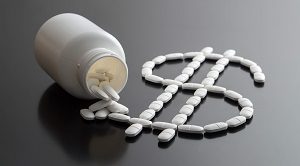Medicaid Drug Rebate Fraud: Should it be an Enforcement Priority?

Medicaid has one very intuitive approach to keeping drug prices in check. Drug companies, under a law called the Medicaid Drug Rebate Program, must rebate Medicaid programs any money that resulted from the increased drug prices outpacing inflation. Inflation is benchmarked to either 1990, or the first year a drug came to market, which ever is later.
As an example of how this works, imagine a pharmaceutical company brought a new drug to market last year. If that drug cost $100 a dose when it was introduced last year, and the inflation rate over the past year was 2%, the maximum Medicaid would pay for that drug is $102 per dose. If the pharmaceutical company raised the drug’s price to $110 per dose, it would be required to rebate $8 per dose back to the various states’ Medicaid programs. A clear, common-sense way to shelter some of America’s most vulnerable from spikes in drug prices.
Failing to rebate that money could be a violation of the False Claims Act. The FCA is a law that allows private parties to sue those defrauding the government, in this case, the Medicaid program, and share in the government’s recovery. Whistleblowers rewards generally range from 15% to 30% of the total recovery amount.
A recent case shows how the Department of Justice can use the FCA to target those who aim to defraud Medicaid by violating the Drug Rebate Program’s provision. Focusing on the issue, and contributing adequate resources to it, would recover hundreds of millions of lost Medicaid dollars and fall in line with the administration’s goal to bring drug prices down.
Last week the United States joined a whistleblower’s lawsuit against a drug manufacturer called Mallinckrodt which makes Achtar. Achtar is an injection-based gel used to treat various diseases including infantile spasms, MS, and allergic reactions in the eye. The drug first came to market in the 1950s. In 2001, when Questcor, Mallinckrodt’s predecessor, acquired production of the drug, it cost $50 per 5ml vial. It now costs $40,000 per vial, an 80,000% increase in 19 years, or average, annual increases of roughly 42%. During those same 19 years, average annual inflation was about 2.01%.
According to the government’s complaint, Mallinckrodt paid timely rebates, but instead of pegging the inflation rate to 1990, when Achtar was already on the market, it pegged them to 2013, when CMS approved it for the treatment of additional diseases. In 2013 the cost of a vial of Achtar was already over $20,000. The government alleges that this practice cost various Medicaid programs, and thus American taxpayer, hundreds of millions of dollars.
The next step in the lawsuit is likely to be either Mallinckrodt answering the government’s complaint or moving to dismiss it.
The suit was originally brought by a whistleblower, James Landolt. Landolt worked at Mallinckrodt’s headquarters in Minnesota and was the Director of Internal Controls for the company. He filed his case in September 2018 and, as noted above, stands to share in any potential recovery.
Like this one, healthcare fraud schemes are often incredibly convoluted and opaque. Insider knowledge is essential to allowing authorities fight fraud on any sort of meaningful scale. This case would likely have never come about without Landolt bravely coming forward and filing it. Focusing on helping insiders root out fraud is an essential tool in fighting ever-rising drug prices, this case is a step in the right direction.
Read More:
Tagged in: Drug and DME Pricing, FCA Federal, Healthcare Fraud, Importance of Whistleblowers, Medicaid, Pharma Fraud, Whistleblower Rewards,